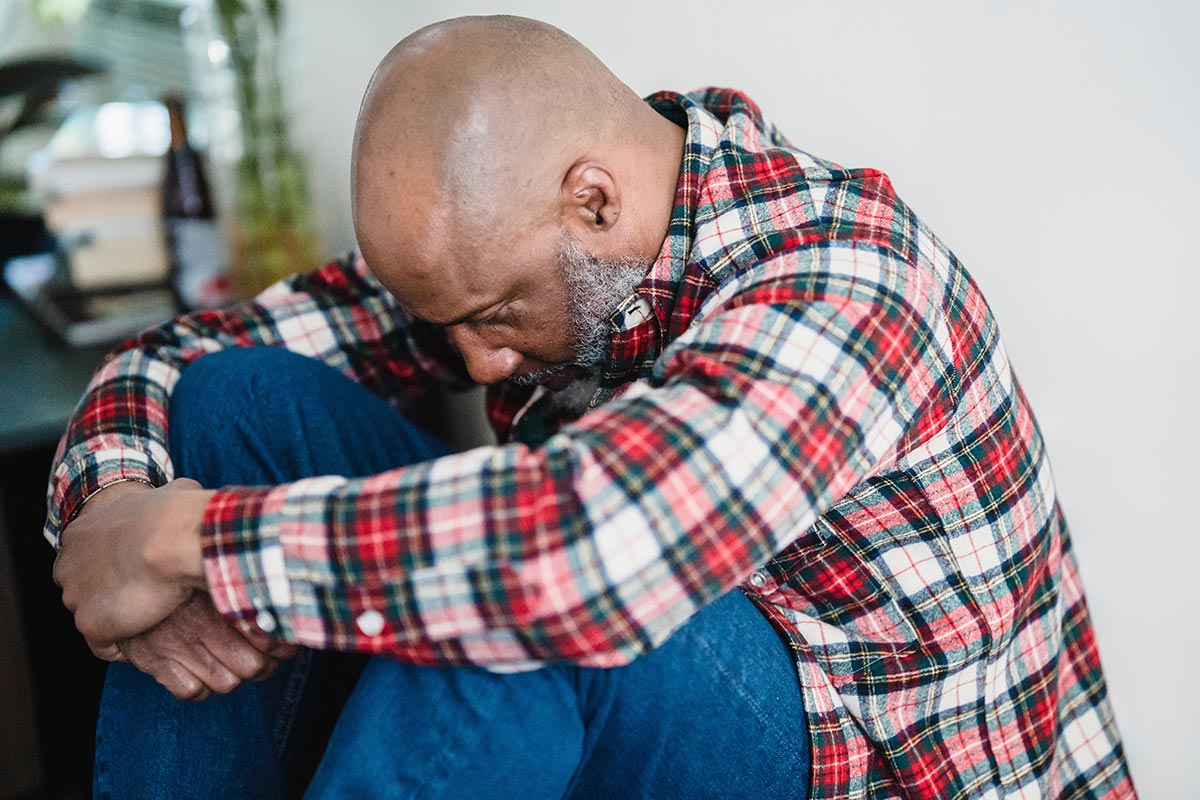Have you been struggling with feelings of shame?

Of all the furies of thought that can flood our minds, shame seems to have a spectacular ability to drown us in our lack of confidence and make us question who we really are. It impacts our life in far too many ways because it’s so insidious, showing up any moment we’re starting to feel okay about ourselves.
The good news is you can heal from shame and enjoy life once again. A good Christian therapist can help you start this healing journey.

Have you been struggling with feelings of shame?
Of all the furies of thought that can flood our minds, shame seems to have a spectacular ability to drown us in our lack of confidence and make us question who we really are. It impacts our life in far too many ways because it’s so insidious, showing up any moment we’re starting to feel okay about ourselves.
The good news is you can heal from shame and enjoy life once again. A good Christian therapist can help you start this healing journey.

Have you been struggling with feelings of shame?
Of all the furies of thought that can flood our minds, shame seems to have a spectacular ability to drown us in our lack of confidence and make us question who we really are. It impacts our life in far too many ways because it’s so insidious, showing up any moment we’re starting to feel okay about ourselves.
The good news is you can heal from shame and enjoy life once again. A good Christian therapist can help you start this healing journey.
Exploring the Roots of Shame
Guilt started in the garden of Eden, when Adam and Eve hid themselves the second they heard God calling for them. Shame probably set in soon after, when they started calling labelling themselves as stupid in general. The finger-pointing likely didn’t help.
Shame can feel so intense, and when it’s swirling around and within, you can feel hurt, worthless, and even useless. It lies about your value and worth to others, and you can read into other people’s body language and facial expressions to come up with your own version of what they are thinking or feeling about your presence and actions. They don’t love me, I never do anything right, I let everybody down, this is who I am… All these thoughts are fed to you by your shame. Shame is no friend, and getting help to silence its voice is commendable.
Imagine playing football as a child, and every time you played, all your dad did was critique your plays. Or you loved art, but whenever you showed your mom the painting, she drew over it to show how you could have done it better. Perhaps your teacher berated you in front of the class, or your private journals were read and laughed over. Perhaps you were criticized often, leaving you feeling like you’d never measure up. That feeling that you bring into your adult life is shame.
The Painful Emotion of Shame
Whenever you look at yourself and feel you’re not worthy or “enough,” ask yourself if you’ve come to believe as true over time. Shame has deep roots, so it can show up anywhere—when you’re at an event and know no one, when you think you are not as smart or as well-dressed as those around you, when you think everyone is “better” than you, when you’re ashamed for even existing. It’s all based on a view you have of what you “should” be like, so it seems impossible to be authentic.
Distinguishing Shame from Other Emotions
It’s easy to confuse shame with guilt, but there’s a difference: Shame focuses on your self while guilt focuses on behavior. With guilt, you feel responsible for hurting someone and not stopping it from happening, while with shame, you feel like you’re not enough or there’s something wrong with you. An easy way to figure out the difference is by asking yourself if you’re feeling bad about who you are or about something you did.
One of the good things about guilt is that you can sometimes make amends, but shame can also be overcome with the right professional.



The Relationship Between Shame and Low Self-Esteem
As shame increases, self-esteem can go down, because shame chips away at you. If you start thinking you’ve failed someone, you can begin to feel hopeless too. It’s like being stuck in a vicious cycle, where every mistake or failure adds more shame, which then makes you feel even worse about yourself. You end up not trying hard with anything because Why bother when I’ll never be good enough anyway? But then you might be criticized for that, which can affect your work life and relationships.
You can’t even be your authentic self online because the minute you post anything vulnerable, you’re jumped on by do-gooders and judgment-heavy strangers, and the last thing you want is to feel humiliated.
Overcoming Shame and Discovering Self-Worth
You can overcome shame. It’s true. And when shame’s voice is silenced and you start believing what’s true about yourself, everything changes for the better. You have more:
- Confidence
- Chutzpah
and better communication skills and boundaries.
Part of silencing shame involves inspecting its triggers, bringing negative thoughts to Jesus, and accepting his love and kindness as a gift that needs no reciprocity. God knows what he has made, and it is good. You are his wonderful creation, and when he looks at you, he sees nothing lacking.
Be Kind to Yourself—An Antidote to Shame
Being kind to yourself can be difficult to learn, but it begins with seeing yourself through God’s eyes and accepting what he sees. You can begin to treat yourself as you would a good friend—with grace. You can accept that you’re normal and that your list of what you “should” be or “should” be doing might be flawed. You can be kind to yourself when you fail, knowing that it doesn’t define who you are.
You can learn to be understanding, to encourage yourself and be patient with yourself, when you accept that you have great value, and that comes from accepting what God says about you and letting his truth permeate.
A Christian counselor can help you develop ways to give yourself:
- Kindness
- Gratitude
- Forgiveness
- Courage



The Impact of Shame on Mental Health and Relationships
Shame keeps too many people isolated. If you’ve ever been reluctant to go out because you think no one will like you or acknowledge you, it might be more about what you’re assuming others are thinking. This is why counseling is so good—you can examine each thought in light of what God says about you and change from being your greatest critic to your greatest encourager.
You really can have a loving and stable friendship or marriage once you learn how to build yourself up rather than tear yourself down.
The Link Between Shame and Mental Health Disorders
Shame is connected to depression and anxiety, which makes sense, as when you feel small and bad about yourself, you’re going to feel discouraged. The more insecure you feel, the more difficult it is for you to be real and vulnerable with those you love.
Opening up to one of our licensed pastoral counselors about everything you are thinking or feeling about yourself can be a relief. You can be authentic at last in a safe place—be that in our Round Rock office or on a video call. We can help you explore and heal from past shame and understand why you find life difficult, and then come up with ways to move forward without the threads of shame in your mind.



Strategies for Reducing Shame in Family Settings
Some families like to always point out the negative in everyone, but it’s never too late to change things. We can help you come up with the language you need to set healthy boundaries and express the need for kindness and positivity. When you have generations of shame-based parenting, it can take time to break the cycle, but it’s possible, and it can help many people in your family, not just you.
Seeking professional counseling can be crucial for improving well-being. Whether it’s individual therapy, group therapy, or couples counseling, there’s a wide range of Christian therapeutic options available that can provide you with the support and guidance you need to overcome feelings of shame and grow your self-worth.
Recognizing and acknowledging feelings of shame is an important first step. It’s about shining a light on what you’re feeling and thinking and saying, “I see you. I understand you. But you don’t define me.” And we’ll be with you as you work through it all.
Choose Your Online Christian Counselor
Shame’s roots can go deep, and it can affect too big a part of your life. But it’s not unbeatable. With patience for your process, a better understanding yourself, and a willingness to process and work through your feelings, you can break free of its grip.
Thanks to the old covenant, God made a way for his people to talk with him again despite their guilt and shame; and thanks to the new covenant, we can step out of all our guilt and shame and into him forever.
If you are ready to take that first step on the path to healing, book your introductory session, either in-office or by video, with one of Head to Heart’s pastoral counselors. We look forward to helping you leave shame behind and embrace a freer way of living.

